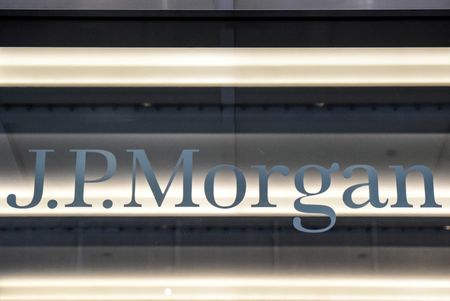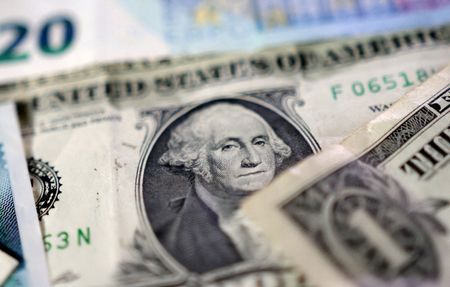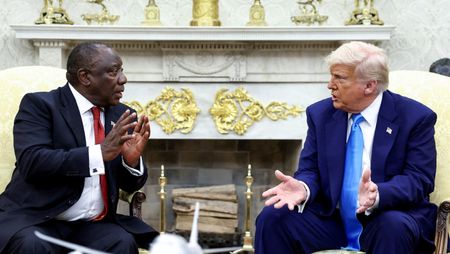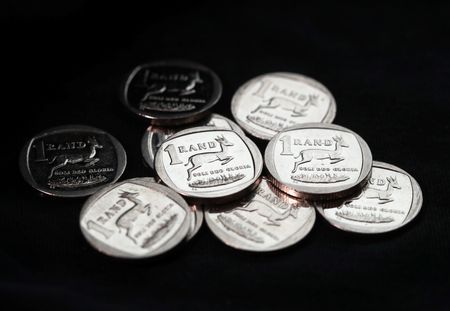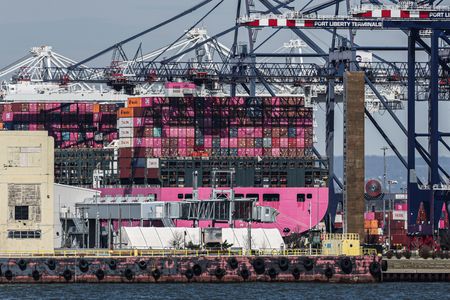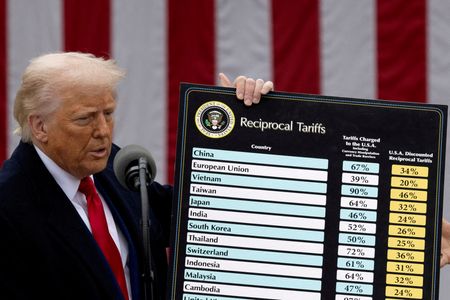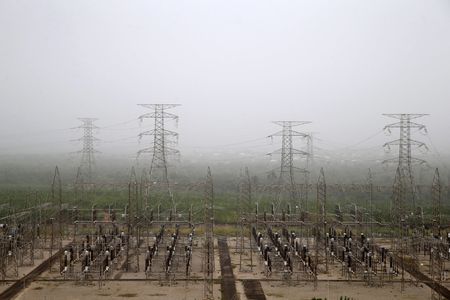By Duncan Miriri
LUANDA (Reuters) -Angola got back $200 million of collateral in May that it had to post to JPMorgan earlier in the year, the finance ministry said, after the price of its bond rebounded, easing pressure on its finances.
JPMorgan and Angola agreed in December a $1 billion, one-year derivative contract known as a total return swap backed by $1.9 billion in its government dollar bonds.
In early April, JPMorgan demanded extra security from the Southern African crude oil exporter after a sharp oil price decline in the wake of tariff turmoil hit the value of Angolan bonds provided as collateral.
“The improvement in the price of Angola’s Eurobonds has a positive impact, allowing the amount paid in compliance with the margin call to be returned to the State. This refund has already taken place,” the finance ministry told Reuters, adding that it received the cash in May.
JPMorgan declined to comment.
The price of the collateral bond for the loan from JPMorgan fell from 100 cents on the dollar at the end of March to a low of 86 cents during the selloff in early April when the margin call was invoked, before recovering to the March levels.
It was quoted at 100 cents on Wednesday, traders said.
Angola, which is saddled with high external debt to various creditors, including oil-backed loans from China, faces a slowing growth outlook and violent protests sparked by a fuel price hike on the back of removal of oil subsidies.
COMPLEX INSTRUMENTS
The total return swap deal with JPMorgan saw the Wall Street bank provide the government with two financing tranches of $600 million and $400 million. The $1.9 billion freshly issued bonds that provide collateral for the deal did not generate any cash for the country.
The bond, which will mature in 2030, is listed internationally and its price is usually quoted in line with movements in the broader market and Angola’s other bonds.
Total return swaps are seen as complex and risky financing instruments, and are very rarely used in sovereign funding.
Angola’s JPMorgan total return swap has added to concerns that heavily indebted, low-rated African countries are increasingly turning to “off-screen” transactions like bank loans, private placements and derivatives which could bring challenges including margin calls and higher interest rates.
Africa’s debt has soared to more than $1.8 trillion, according to data from the African Development Bank, leading to three sovereign debt defaults in the past four years and unconventional financing deals as governments seek to stay afloat.
In Angola, concerns have been growing about falling social spending by the state amid demands for more investments into infrastructure projects like roads.
The International Monetary Fund cut Angola’s preliminary growth outlook for 2025 to 2.4% from an initial 3%, citing lower crude oil prices and tighter external financing conditions.
(Reporting by Miguel Gomes in Luanda and Duncan Miriri in Nairobi; Editing by Karin Strohecker and Jan Harvey)

